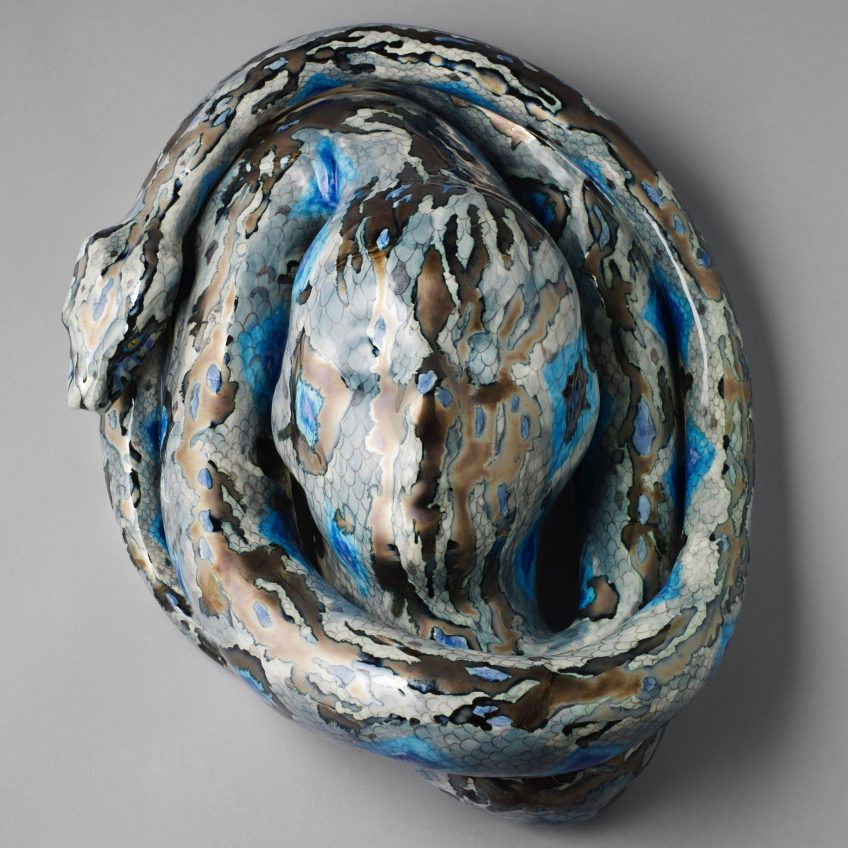The weather is changing. Rhythms and interactions that had seemed eternal degrade. The realm of the uncertain expands. Uncertainty inspires fear, fear inspires rage. Points of recognition are shifting, points of return becoming rare. The measure of human meaning and dignity has been reduced to discussions of financial gains and losses.
A song can seem a slight thing. Barely there. Unless it is in the midst of being sung or being heard it could be said to exist only in potential or in memory. What is the form of this potential? A balance of words, chords, melody. Balance implies an interaction. The song is the point of balance that is returned to, potential turned into action with intention. In this way the song is the music of ritual. Ritual is the creation of human meaning through repetition.
With Dark Blue, Steven Lambke builds a visceral swirl of narrative images, dense with allusions and invocations, rich with imagery and scene, into a series of creation stories, a document of disruption, a lament for environmental ruin and the destructions of colonialism, and a stubborn evidence of endurance and transcendence. It is a product of this time, a collaborative process between poet and muse, inspiration and scribe, guitar and voice and drum.
The release of Dark Blue marks the 10th anniversary of You’ve Changed Records, the label co-founded in 2009 by Steven Lambke and Daniel Romano. A collaboration yields its own energy. Evocative poetry and guitar work reminiscent of Lambke’s long career with indie legends The Constantines combine with Romano’s multi-instrumental skill and production talents in a music that is sophisticated and immediate, intimate and expansive.
But what act of creation could ever be called complete? The song reacts to the world into which it is sung, and acts on that world. The outcome is never known and the song is not sung the same way twice as everything surrounding it will have changed. The song moves through the world like a rendezvous of atoms.
Begin again. Calling equally to the past and to the future, the song has a double existence as an expression of memory and an expression of hope.


